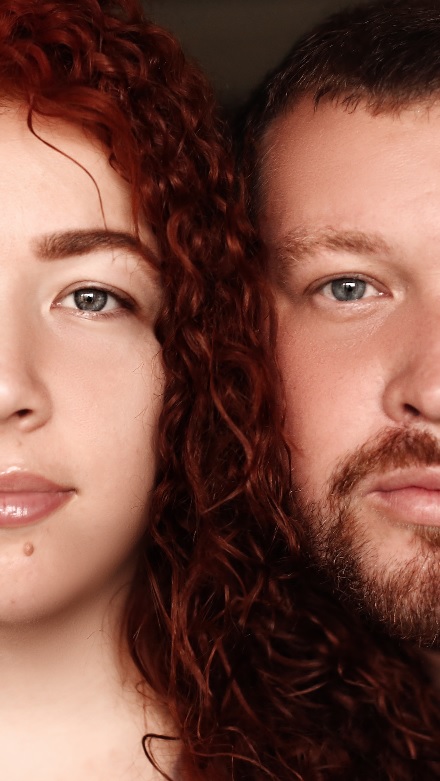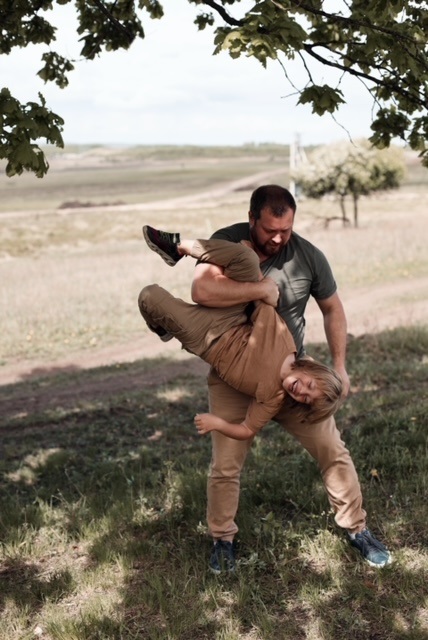
— Please tell us your history in the USA.
Texas is our first state in the USA. We flew across the Atlantic purposefully to Austin. We don’t have a history in America yet. But the story of getting to America dragged on for two years. Finally, in the first covid summer, we decided to move and talked with an immigration lawyer from the United States. Until 2021, we worked with her on a case for an EB1 visa.
My husband is a gifted children’s karate coach, black belt, three dan, was going to receive a talent visa. In his professional history, there are champions and prize-winners in Russia, Europe, and the World.
I should note that we lived all our lives before moving to the US in a tiny Far Eastern town of 5 thousand people. To become a European champion in karate in his native Tsiolkovsky (a village in taiga) is an important event. Vasily provided our city with such events dozens of times. The first candidates for the master of sports in Tsiolkovsky are also my husband’s students.
— What happened next?
The lawyer said we passed the criteria and got a talent visa without problems. But problems still happened. First, covid became a reason to cancel all competitions a year in advance, and face-to-face training was also canceled.
My husband plunged headlong into administrative work. He was the director of the sports complex. He completed the swimming pool, cardio, and gymnasiums and opened a sensory integration department for children with disabilities. In his first specialty, Vasily is a teacher of adaptive physical education. And while he was opening the sensory department, looking for specialists, he was so deeply immersed in the topic that it has not let him go until now.
In the meantime, we thought about moving. Since the conclusion of the contract, we have managed to live in Indonesia. We drove all over Russia by car from Vladivostok to Moscow. It was a long journey, 80 days and 25,000 kilometers long.
We moved to Bryansk to gain experience in a powerful correctional children’s center and opened our own. And there begins the war. It was no longer possible to postpone the move. But the situation with consulates in Russia is deplorable. They stopped work. We had only one chance to leave to get a tourist visa and wait for EB1.
Thus, having left the border of Russia and Ukraine in March, we received the first Schengen in our life in April, and we lived in Germany and Italy for three months. We rode through Scandinavia and France. We waited in line at the Polish consulate and received a visa. In mid-July, we flew to Austin. To the city that our friends chose for us. All we knew about the city before we moved here was the places of honor at the top of all rankings of the best cities to live in.

— Do you like Austin?
For the first two weeks, we, frankly, were in shock. It seemed that there were no people in Austin and no infrastructure. No parks and fountains, architecture, and street art. Two weeks later we bought a car. And we saw Austin as a magnificent cozy city, green and sporty, inspiring and musical.
We believe that we will find ourselves here. We can use our knowledge and skills here.
— Tell us about your professions and what you are planning to do in Austin.
My husband is passionate about working with children in sports and rehabilitation. I am a professional confectioner. I had my own business in Russia related to cakes and other desserts, and I had my culinary school.
In Austin, people also love to eat delicious food. For right now, I look narrowly and study the demand. Whether low-calorie marshmallows or Russian cakes, or traditional European pastries are needed here, I don’t know yet. But I would like to connect my profession with food, catering, or exclusive, complex cakes with voluminous décor. Who knows, maybe we will open a family pizzeria with a library in the center of the hall, where you can have a tasty snack and read books in Russian. Delicious food and good books are my and my husband’s biggest passion.

— Is it important for you not to forget the Russian language and culture?
Keeping the Russian language in our family and Russian culture seems essential. We have two kids. They will attend American schools, and our priority is to read as much good Russian literature as possible with them and as well as some modern authors. We will introduce our children to Russian culture and history. We will help them remember Russian art and science.
Our children have not attended a public school in Russia since 2019. I homeschooled my kids due to ideological reasons. I even blogged about it. Here I plan to continue this education in the same easy form. But they will officially finish school in Austin or another American city.
— What are your interests and hobbies?
My husband looks out for rowing and jiu-jitsu training in Austin. He is passionate about all water sports and martial arts.
I glance towards the dog parks. I hope to get a big shaggy dog as soon as we can afford it. In Russia, we always watched dogs before somebody adopted them into the family.
We enjoy a beautiful bright sun in Austin. We rented an apartment with beautiful natural light in the morning. For the first time since February 24, I plan to write a new recipe for my food blog and cooking school! Austin is inspiring!
We wish all people to remember that they live in the best city in the USA, according to the majority of YouTube ratings. Therefore, do not forget to rejoice at this fact, be inspired by us, and help keeping the city clean and comfortable.
Contact information:
https://www.facebook.com/100083378689845
https://www.facebook.com/maria.podruchnaya
Interviewed by: Olga Ovcharenko
Editor: Olga Falkowski
Publisher: Russian Cultural Center in Austin
